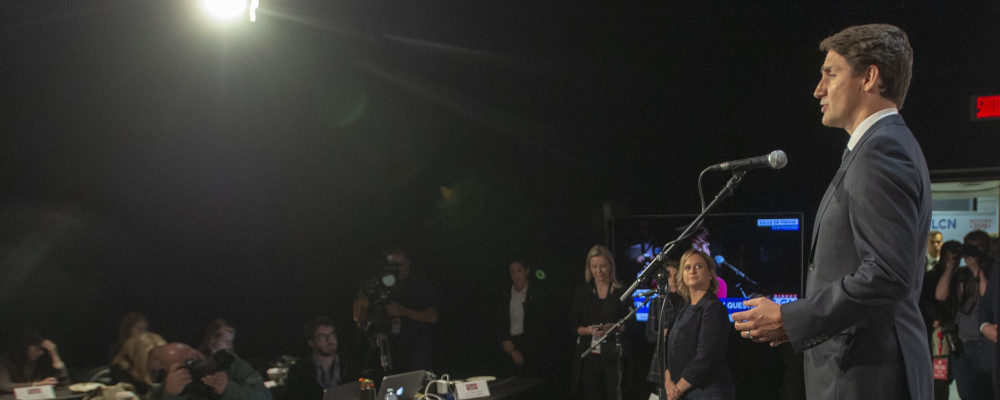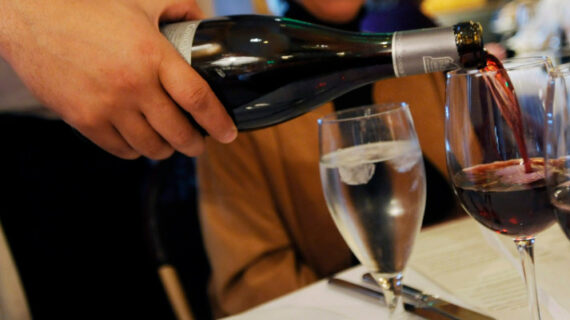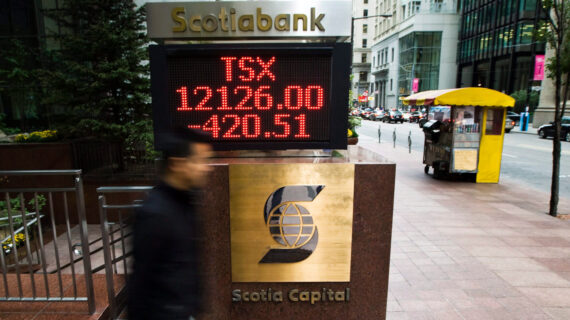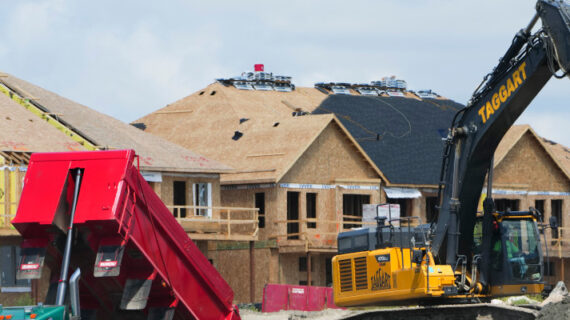About last night: the general consensus among the chattering commentator class was that there was no clear “winner” in last night’s French-language leaders’ debate.
That may well be if we want to follow the sports analogy, but election debate are not all about KOs and own goals.
Election debates, and in particular those that come in the wake of a summer campaign played out mainly on social media, are important because they allow some focus to emerge from the wallpaper of electoral signage and campaign noise. We get to hear what political leaders are actually promising voters and how they defend and differentiate these ideas from their rivals. It also allows voters to take the measure of the man (in last night’s case, it was an all-male cast) who would be prime minister.
MORE SIGNAL. LESS NOISE. THE HUB NEWSLETTER.
First things first, this was the first electoral debate in a long time where all four participants could actually engage with each other in French. Not only did this make for good television, for a change, it also allowed francophone voters to acknowledge that English-Canadian politicians can speak their language both literally and figuratively.
And this was Conservative leader Erin O’Toole’s biggest challenge: to introduce himself to the voting public as a credible alternative and to defend himself from attempts to define him as a scary conservative. On that note, he succeeded. Maybe it’s his military credentials, but his stoic calm played well against the wound-up Justin Trudeau, who often hogged the mic in a way that wasn’t pretty, and the smoother but also tightly wound Yves-Francois Blanchet, who baited O’Toole all evening. This reflected the increasingly obvious concern that the Conservatives may be eating into both Liberal and BQ support in Quebec.
The rookie Conservative leader had a few tense moments, including exchanges about daycare and health care. But he was not singled out for grilling on the environment, a top of mind policy issue for Quebecers; he acquitted himself well on the language issue — with a shout-out to Brian Mulroney; and, surprisingly for some observers, came out as the best defender of “zero tolerance” for sexual abuse in the armed forces. Still, he stayed on message a bit too much, to the point where the mention of his party’s “plan,” at least two dozen times by my count, could have turned into a very intoxicating drinking game. Another robocall repetition was the repeated reference to partnerships with his BFF Premier François Legault, in supporting Quebec’s autonomy and jurisdiction.
It’s not to say that Trudeau didn’t have a good debate, but it’s a format that brings out both the best and the worst in him. It’s no secret by now that Liberal support may be softening in Quebec, and it showed. He was put on the defensive from the first moment on air, with everyone, including Pierre Bruneau, the venerable moderator, on calling this election, to which the prime minister just didn’t have a good answer. Does it matter? Two weeks into a campaign, that question should be dead, but here it is, still alive and kicking.
The moderator also got in on the action in pummeling Trudeau on language issues, which is not a good look for a politician from Quebec. By the end of the evening, we saw Trudeau resort to Liberal strawmen tactics — the non-vaccinated “20 percent,” two-tier health care, and of course, Stephen Harper — and his own weakness for shooting from the hip, in suggesting that without a majority government, “we’ll be back here in 18 months.”
There’s not much to say, ironically for a French-language debate, about Yves-François Blanchet, except to say that he was true to himself, and vigourously defended his party’s defense of Quebec interests in the House of Commons. That’s pretty much the alpha and omega of the BQ, and by this point, it’s no surprise to anyone, in Quebec or elsewhere. But the one thing Blanchet did do, which is telling, is that he was able to put any doubts to rest that a protest vote could once again move from the BQ to the NDP. His exchanges with Jagmeet Singh were among the most abrasive, and his put-down of the NDP’s platform as “magical thinking” was the most quotable of the evening.
Overall, this first debate can be seen to reflect the trends already in motion of this election campaign: it’s a three-way race in Quebec, without the NDP. The launch of the Liberal policy platform will not likely reverse the softening trend line in their support elsewhere. And the Conservative leader has so far been successful in defending his image from his rivals.
Now it remains to be seen how the leaders can muster something interesting in the second debate in French and, crucially, how they prepare for their make or break performance on the national stage in the English language debate.




